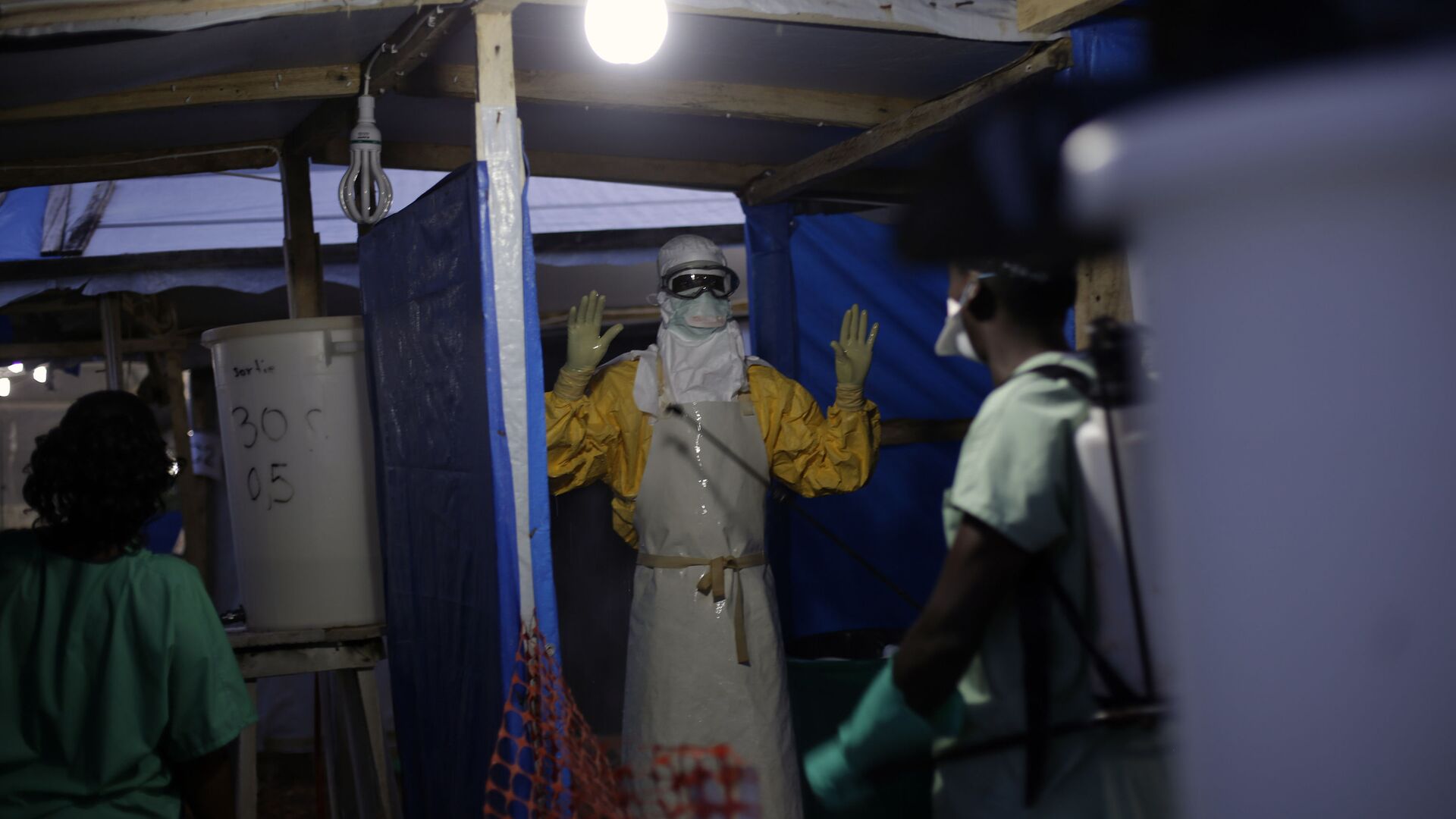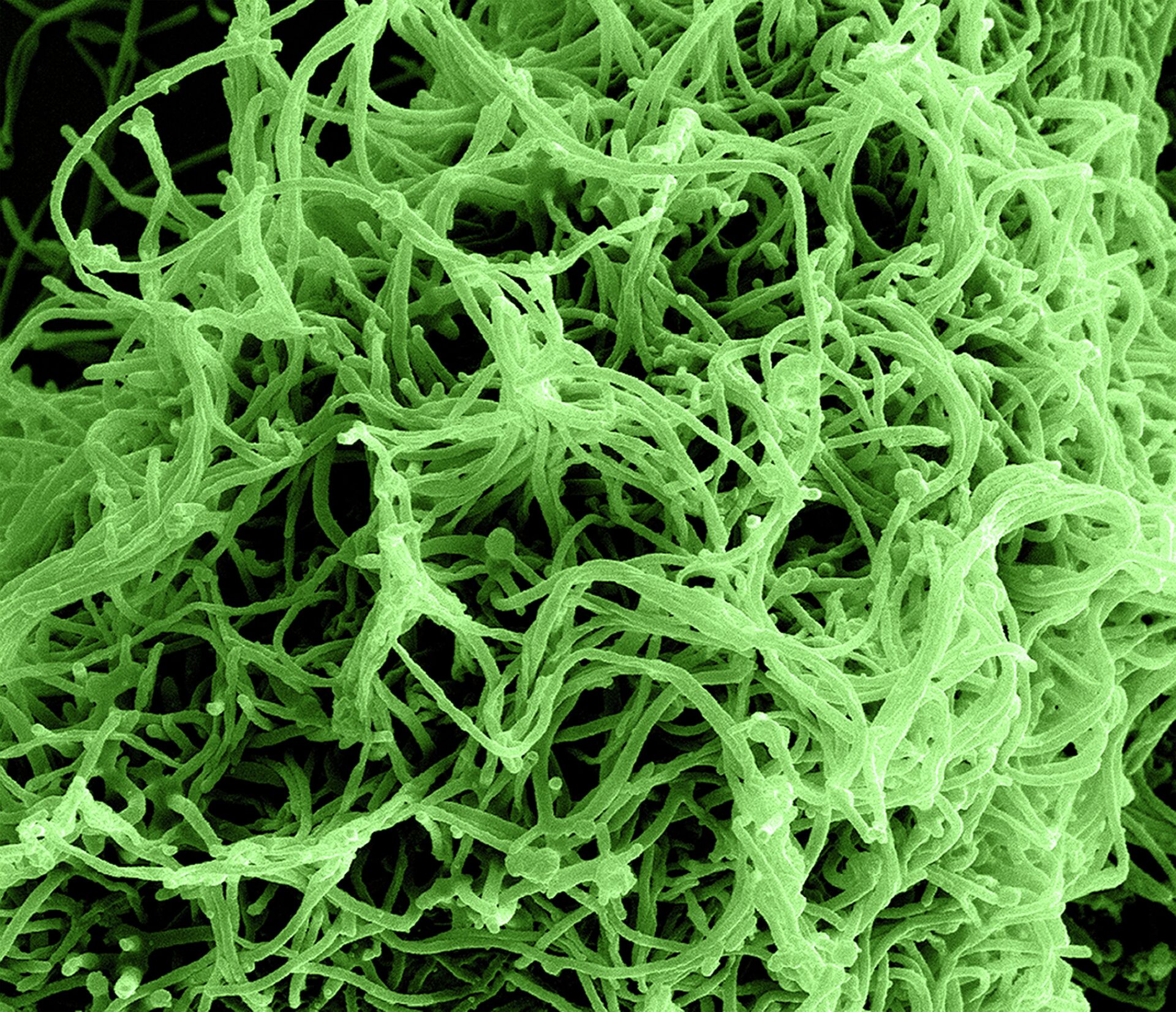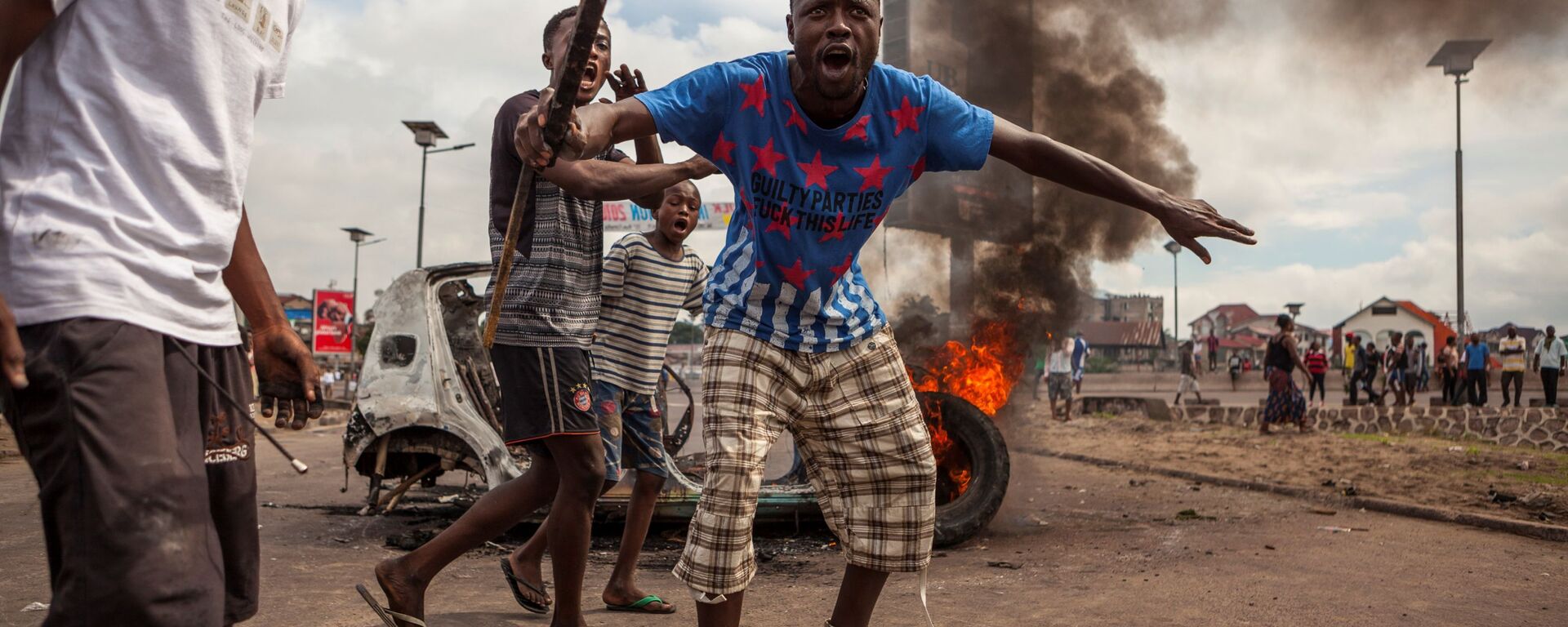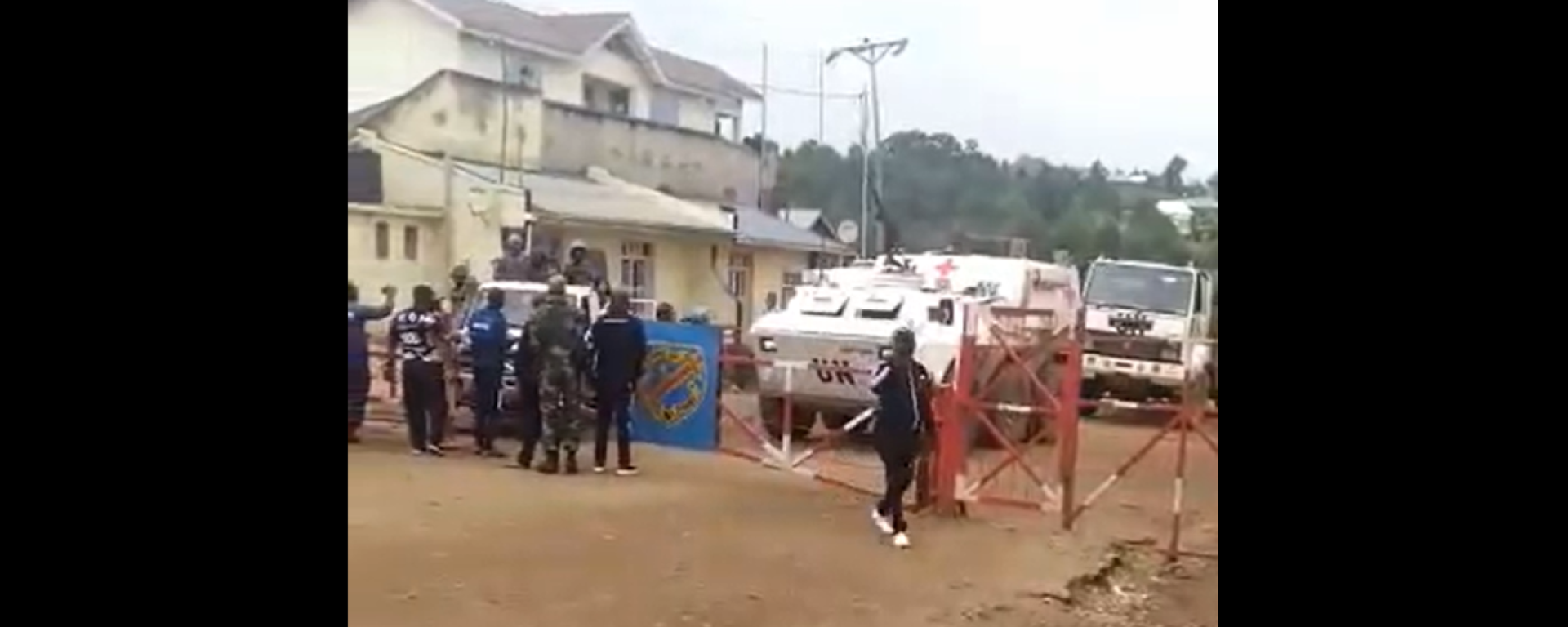https://sputnikglobe.com/20220823/dr-congo-rushes-to-contain-resurfaced-ebola-outbreak-amid-deadly-anti-un-protests--1099883288.html
DR Congo Rushes to Contain Resurfacing Ebola Outbreak Amid Deadly Anti-UN Protests
DR Congo Rushes to Contain Resurfacing Ebola Outbreak Amid Deadly Anti-UN Protests
Sputnik International
On 4 July 2022, the Democratic Republic of the Congo declared the end of an Ebola outbreak that erupted on 23 April in Mbandaka, the capital of Equateur... 23.08.2022, Sputnik International
2022-08-23T06:20+0000
2022-08-23T06:20+0000
2022-11-24T11:10+0000
ebola
africa
ebola
world health organization (who)
the united nations (un)
central africa
democratic republic of the congo
https://cdn1.img.sputnikglobe.com/img/07e5/08/0a/1083572142_0:160:3073:1888_1920x0_80_0_0_a25606f07d3854386f9fbaf0c1287915.jpg
A new case of Ebola virus has been confirmed in the city of Beni, in the eastern Democratic Republic of Congo (DRC), the country's National Institute for Biomedical Research (INRB) confirmed on 22 August.According to the institute, genetic sequencing linked the case of the 46-year-old woman who died with symptoms consistent with the disease in mid-August to the outbreak between 2018 and 2020.Congo's largest outbreak - the second-largest recorded globally - in the east claimed around 2,300 lives, the institute added in a statement.As authorities race to contain the new outbreak, they are cited as having successfully identified 131 contacts of the woman, including 60 frontline healthcare workers, 59 of whom are vaccinated against Ebola, reported The Telegraph, which spoke to Dr Placide Mbala-Kingebeni, head of epidemiology at INRB.Ebola is transmitted to people via fruit bats. It spreads between humans through direct contact with the bodily fluids of infected people or someone who has recently died from the virus. The disease causes small vessels to burst and bleed, eventually killing the patient. Unvaccinated victims are believed to have a 25 to 90 percent chance of death.The WHO recommended the use of two monoclonal antibody treatments against Ebola on 19 August - Regeneron's Inmazeb and Ridgeback Bio's Ebanga. It stated that use of such drugs combined with better care had “revolutionized” the treatment of a disease once seen as a near-certain killer.News of the present Ebola case comes after the country's 14th outbreak - in Mbandaka, the capital of Equateur Province in the north-west – had been declared over on 4 July 2022. It was the third Ebola outbreak in the province since 2018.With the support from the World Health Organization (WHO), authorities had rolled out a swift response soon after the outbreak was declared on 23 April, with counter-measures including testing, contact tracing, infection prevention and control. Vaccination was launched just four days after the outbreak was declared. There had been four confirmed cases and one probable case, with all the individuals dying.Weighing in on the current resurfacing of the disease, Dr Mbala-Kingebeni was cited as saying:“We do not expect a huge outbreak. We think that we will get this under control soon.”Wave of Unrest Sweeps Eastern DRCDespite the optimism of the head of epidemiology at INRB, concerns have been growing that it will be extremely difficult for the UN organization to react to the new outbreak.News of Ebola reemerging in DRC came as deadly anti-UN protests broke out in the country earlier in August, reportedly killing at least a dozen protestors and three blue berets (UN peace-keepers).The Congolese had been angered by how little security in the central African country has improved despite the United Nations Organization Stabilization Mission in the Democratic Republic of Congo (MONUSCO) having been present for more than two decades. MONUSCO took over from an earlier UN peace-keeping operation - the United Nations Organization Mission in Democratic Republic of the Congo (MONUC) - on 1 July 2010.The mission has more than 14,000 troops and police officers in DR Congo, whose stated goal is to combat violence by armed groups. However, in a country scarred by the atrocities of Belgian colonialism, which ended in 1960, and the ensuing power struggles and corruption, security is highly volatile.Against the backdrop of extremely high levels of poverty and displacement, fighting rages on between more than 130 armed groups. Furthermore, DRC has the highest number of allegations of sexual exploitation, abuse and pedophilia perpetrated by UN peace-keepers of any country in the world. The DRC has been dubbed the “rape capital of the world” and “the worst place in the world to be a woman”.Over recent weeks, there have been a number of violent protests against UN peace-keeping forces in eastern DRC, with locals calling for the forces to withdraw from the area. The UN is reported to have retreated from Butembo, a city close to where the latest Ebola case was detected. Furthermore, there are allegedly talks with the government about an overall scaling down of operations.
https://sputnikglobe.com/20220802/dr-congo-says-32-civilians-killed-in-protests-against-un-peacekeepers-1098046947.html
https://sputnikglobe.com/20220801/watch-un-monusco-peacekeepers-open-fire-on-uganda-congo-border-crossing-killing-two-1098014019.html
africa
central africa
democratic republic of the congo
Sputnik International
feedback@sputniknews.com
+74956456601
MIA „Rosiya Segodnya“
2022
News
en_EN
Sputnik International
feedback@sputniknews.com
+74956456601
MIA „Rosiya Segodnya“
Sputnik International
feedback@sputniknews.com
+74956456601
MIA „Rosiya Segodnya“
ebola, ebola, world health organization (who), the united nations (un), central africa, democratic republic of the congo
ebola, ebola, world health organization (who), the united nations (un), central africa, democratic republic of the congo
DR Congo Rushes to Contain Resurfacing Ebola Outbreak Amid Deadly Anti-UN Protests
06:20 GMT 23.08.2022 (Updated: 11:10 GMT 24.11.2022) On 4 July 2022, the Democratic Republic of the Congo declared the end of an Ebola outbreak that erupted on 23 April in Mbandaka, the capital of Equateur Province. There had been four confirmed cases and one probable case, all of whom died. Since 1976, the Democratic Republic of Congo has suffered 14 outbreaks of Ebola.
A new case of Ebola virus has been confirmed in the city of Beni,
in the eastern Democratic Republic of Congo (DRC), the country's National Institute for Biomedical Research (INRB) confirmed on 22 August.
According to the institute, genetic sequencing linked the case of the 46-year-old woman who died with symptoms consistent with the disease in mid-August to the outbreak between 2018 and 2020.
"Our initial findings indicate that this case probably represents a new flare-up of the 2018-2020 Nord Kivu/Ituri outbreak, initiated by transmission of the Ebola virus from a persistently infected survivor or a survivor who experienced a relapse," the statement said.
Congo's largest outbreak - the second-largest recorded globally - in the east claimed around 2,300 lives, the institute added in a statement.
As authorities race to contain the new outbreak, they are cited as having successfully identified 131 contacts of the woman, including 60 frontline healthcare workers, 59 of whom are vaccinated against Ebola, reported The Telegraph, which spoke to Dr Placide Mbala-Kingebeni, head of epidemiology at INRB.
Ebola is transmitted to people via fruit bats. It spreads between humans through direct contact with the bodily fluids of infected people or someone who has recently died from the virus. The disease causes small vessels to burst and bleed, eventually killing the patient. Unvaccinated victims are believed to have a 25 to 90 percent chance of death.
The WHO recommended the use of two monoclonal antibody treatments against Ebola on 19 August - Regeneron's Inmazeb and Ridgeback Bio's Ebanga. It stated that use of such drugs combined with better care had “revolutionized” the treatment of a disease once seen as a near-certain killer.
News of the present Ebola case comes after the country's 14th outbreak - in Mbandaka, the capital of Equateur Province in the north-west – had been declared over on 4 July 2022. It was the third Ebola outbreak in the province since 2018.
With the support from the World Health Organization (WHO), authorities had rolled out a swift response soon after the outbreak was declared on 23 April, with counter-measures including testing, contact tracing, infection prevention and control. Vaccination was launched just four days after the outbreak was declared. There had been four confirmed cases and one probable case, with all the individuals dying.
Weighing in on the current resurfacing of the disease, Dr Mbala-Kingebeni was cited as saying:
“We do not expect a huge outbreak. We think that we will get this under control soon.”
Wave of Unrest Sweeps Eastern DRC
Despite the optimism of the head of epidemiology at INRB, concerns have been growing that it will be extremely difficult for the UN organization to react to the new outbreak.
News of Ebola reemerging in DRC came as deadly
anti-UN protests broke out in the country earlier in August, reportedly killing at least a dozen protestors and three blue berets (UN peace-keepers).
The Congolese had been angered by how little security in the central African country has improved despite the United Nations Organization Stabilization Mission in the Democratic Republic of Congo (MONUSCO) having been present for more than two decades. MONUSCO took over from an earlier UN peace-keeping operation - the United Nations Organization Mission in Democratic Republic of the Congo (MONUC) - on 1 July 2010.
The mission has more than 14,000 troops and police officers in DR Congo, whose stated goal is to combat violence by armed groups. However, in a country scarred by the atrocities of Belgian colonialism, which ended in 1960, and the ensuing power struggles and corruption, security is highly volatile.
Against the backdrop of extremely high levels of poverty and displacement, fighting rages on between more than 130 armed groups. Furthermore, DRC has the highest number of allegations of sexual exploitation, abuse and pedophilia perpetrated by UN peace-keepers of any country in the world. The DRC has been dubbed the “rape capital of the world” and “the worst place in the world to be a woman”.
Over recent weeks, there have been a number of violent protests against UN peace-keeping forces in eastern DRC, with locals calling for the forces to withdraw from the area. The UN is reported to have retreated from Butembo, a city close to where the latest Ebola case was detected. Furthermore, there are allegedly talks with the government about an overall scaling down of operations.
“The WHO is linked to the UN, so if they [arrived to treat the outbreak], it could be very badly interpreted by the local community, which is angry,” a senior source linked to the WHO in Congo was cited as saying.







